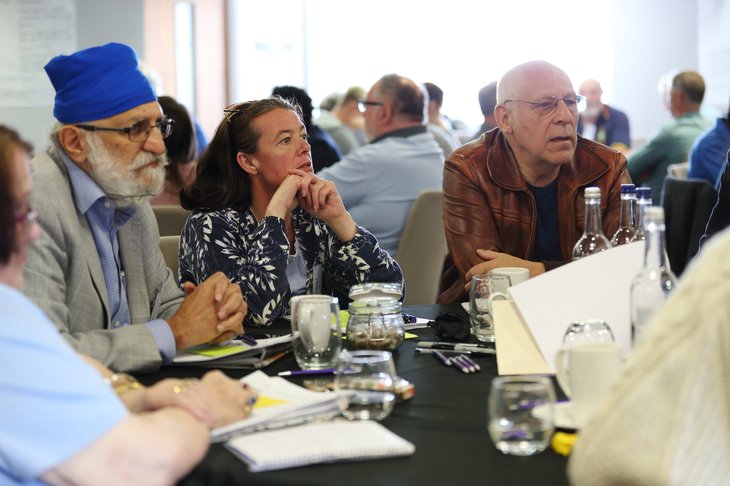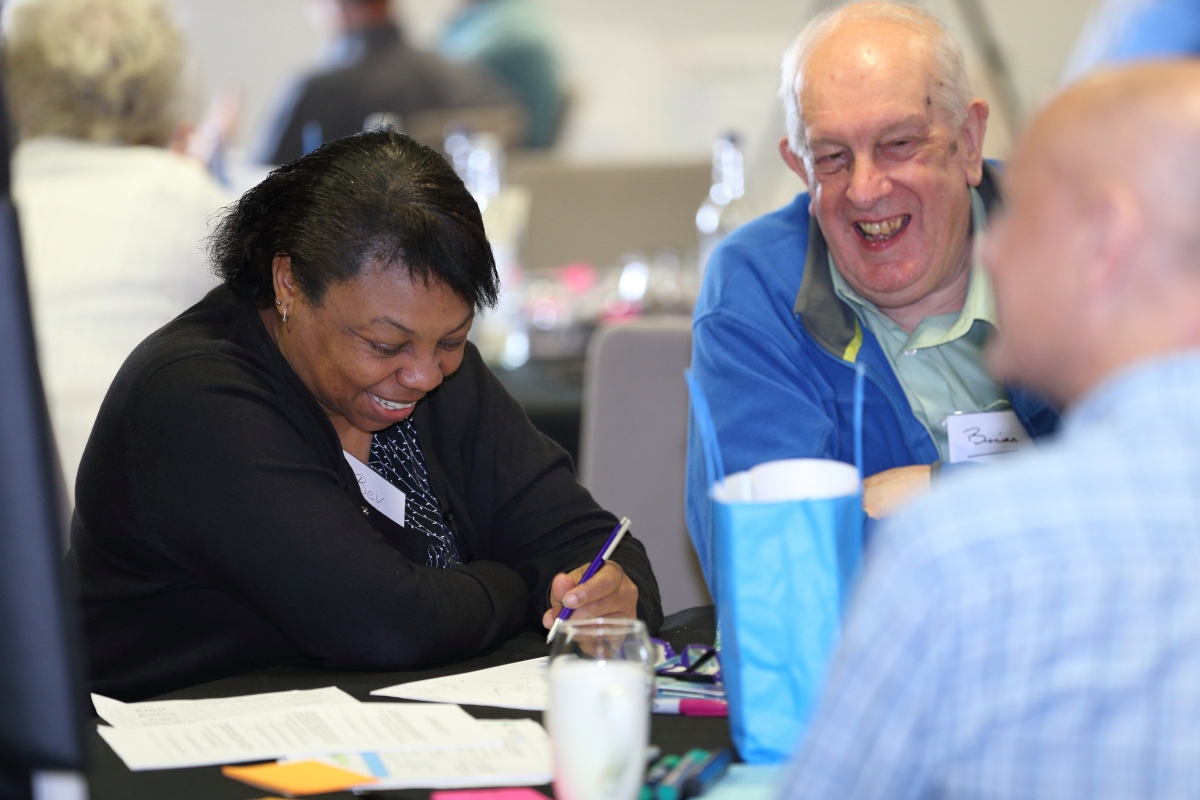
- Article
Parliament asked ordinary people what the UK should do about climate change – here’s what they said
In June 2019 – after a dramatic period where Greta Thunberg and Extinction Rebellion helped push climate change back into the spotlight – the government committed to get the UK’s carbon emissions to ‘net zero’ by 2050.
To help work out how to do this in practice, parliament created a Citizens’ ‘Climate Assembly’. The idea was to hear from a cross-section of society, to understand how the public wants to approach this challenge.
It’s been a fascinating democratic experiment. And if you’re used to the UK’s normal mud-slinging climate debate, the results might come as a surprise.

How it worked
The assembly brought together 108 people from all walks of life, with a range of age, education, region, income, ethnicity, and climate change attitudes that reflect the British public. The group spent 60 hours learning from experts on how climate policy and science will affect the UK. Then they were asked to propose a way forward.
After debating all kinds of carbon-cutting solutions, they eventually put forward 550 pages of ideas for the government.
The final ideas, which assembly members voted on, are bold, but also carefully thought through. They account for things like cost and difficulty – for example, in making radical changes to people’s lifestyles. They’re also clear that the government needs to make sure the changes are fair to everyone.
The climate assembly’s plan shows that when people are given space to understand the facts and debate the solutions, they’ll support climate-friendly policies. It’s also shown that ordinary people can tackle big, complex, and urgent issues – and come up with truly bold proposals.
Here are some highlights from the plan.
Reduce cars in city centres
The assembly wants a reduction in cars in cities, improvements in public transport, and better walking and cycling options. They also supported banning the sale of new fossil-fuelled cars, vans and SUVs sooner rather than later. But they also wanted to avoid restricting peoples’ lives, particularly disabled people, or those in rural areas.
A quick move over to electric vehicles was popular with the assembly. But they saw the cost of these cars as a big barrier.
Greenpeace is asking the government to transform transport – with more walking, cycling and better public transport to making sure the switch to electric cars isn’t burdensome for people or the environment. Join the campaign here.
Tax frequent flying
The assembly agreed that a tax on people who fly the most and furthest, plus funding for cleaner plane technology were essential to reduce climate-wrecking emissions from flying.
They were still keen to allow people to fly occasionally. And they recognised that although Brits fly more than any other country on average, this isn’t shared out evenly. In fact, 15% of people take 70% of all UK flights. And half of people in the UK don’t fly at all in a year.
Members also wanted the government to make alternatives to air travel – like long-distance trains – cheaper and more accessible.
Climate campaigners Possible are working to get a frequent flyer tax for the UK – learn more and get involved here.
Save energy at home
Many members wanted to see changes in how people use heat and electricity at home, with more home insulation and zero-carbon heating systems.
But the complexity of energy and its role in causing climate change poses a big barrier for public understanding – arguably meaning an even bigger role for the government, to make better policies and regulations to help households.
One member told the BBC that the media should take a role in helping people understand the issues, and maybe even schools as well.
The government could create around 400,000 green jobs in fixing up badly-insulated homes so they waste less heat. Learn more and get involved here.
Less red meat
The assembly put forward the idea of a voluntary cut in eating red meat, but acknowledged it would be hard to make this happen without more education about the impact of meat-eating.
The group strongly supported labelling food products with their emissions, rules for supermarkets and other food suppliers, and for more low-carbon farming.
Members saw a strong government role in supporting farmers with information and training. They also supported the idea of payments for landowners whose land helped absorb and store carbon.
Greenpeace is calling on Tesco to cut the amount of meat it sells, and stop buying from forest-destroying suppliers. Learn more and get involved here.
Buy better, share and repair
The assembly made strong recommendations for businesses to create products using less energy and more sustainable materials – and to make things that last longer.
Members wanted to see more schemes for people to share rather than buy. That could involve loans or rentals of equipment people only used occasionally. The assembly proposed expanding what’s already working – like charity shops. They also wanted people to be able to repair, reuse and recycle things in their communities, and buy less new stuff.
They also backed advertising bans on high-polluting sectors like fast fashion, and rewarding businesses that use recycled materials.
Here’s a guide on how to quit fast fashion, through making, mending, learning and activism.
Help nature to remove carbon
The Climate Assembly also discussed how to remove carbon from the atmosphere – from natural to more high-tech methods.
Restoring and expanding natural areas like forests and wetlands would help absorb and store more carbon from the atmosphere, and would also make it easier for people to get out and enjoy nature.
Here’s a list of nature and wildlife projects that we could make a start on right now, from Wildlife and Countryside Link.
Assembly members were less supportive of carbon capture and storage, however. They said it could be thought of as a ‘magic solution’ that ‘takes the focus off the amount that we are emitting in the first place’. Some did see benefit in doing more research into these technologies in case they were needed in future.
A low-carbon roadmap
Finally, there was a lot of enthusiasm among assembly members for renewable energy. They agreed that the UK should create electricity from three renewable sources.
Offshore wind was the most popular, followed by solar power and onshore wind. They were all seen as being clean, low cost and proven to work. Nuclear power was not popular however, and largely for the same reasons.
The government has said it will study the citizens’ plan, and although they won’t be forced to follow the recommendations, they’ve now got even more proof that the public is ready for bold actions to tackle climate change.
